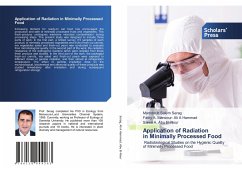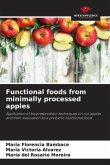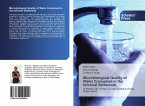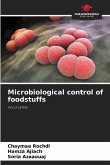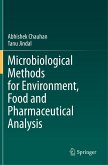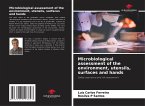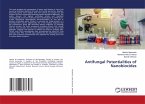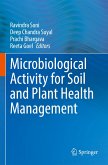Increasing demand for ready-to eat food has encouraged the production and safe of minimally processed fruits and vegetables. This fresh-produce undergoes extensive microbial contamination during processing steps. The present study was designed to include three parts of work. In the first part, a limited survey (15 samples of each product) of minimally processed vegetables and fruits (fresh-cut carrots, mix vegetables salad and fresh-cut pear) was conducted to evaluate their microbiological quality. In the second part of the work, the radiation resistance of the pathogenic bacteria which were isolated from these fresh produce was studied. In the third part of the work, the packaged fresh-cut carrots, mix salad and fresh-cut pears were exposed to different doses of gamma radiation, and then stored at refrigeration temperature. The effect of gamma irradiation dose on the microbiological, biochemical and sensorial quality of these products was studied immediately after irradiation and during subsequent refrigeration storage.
Bitte wählen Sie Ihr Anliegen aus.
Rechnungen
Retourenschein anfordern
Bestellstatus
Storno

